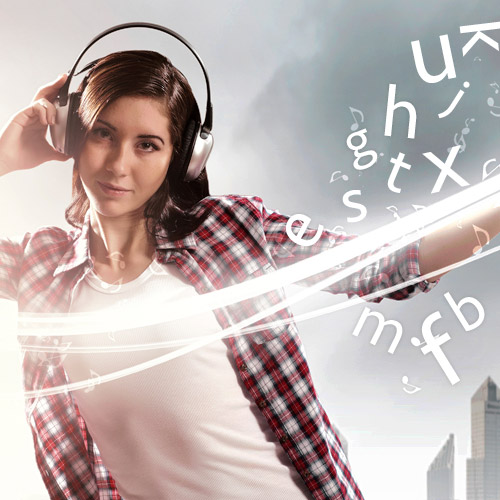Hearing should be checked regularly throughout life—just like eyes and teeth.
So if you've not yet had your hearing baselined, it's important to do so the first chance you get.
Here's why.
Start with a baseline...
A baseline hearing check measures your hearing as it is at this point in time. It will confirm which sounds currently sit within your hearing range–and highlight any sounds that fall on the outside of your hearing.
Getting a baseline is a bit like taking a snapshot of your hearing at a single point in time so you have something to compare with in the future.
...then check it routinely.
We get the brakes on our cars checked regularly – even if everything appears to be fine. We don't leave it to chance. Why? Because we want to be certain they won't let us down when we need them most.
It's exactly the same with our hearing. Regular hearing checks pick up changes in our hearing far more effectively, and far earlier, than we could otherwise. That way we always keep our risk of unknowingly mishearing down to a minimum – as well as catch any preventable (but otherwise serious) problems and risks to our health.
Tell me about this service
We have two types of basic hearing check:
Audify® RAD test (5 minutes)
This is a great option if you're short of time and want to know out what's happening with your hearing.
Simply pop into Audify®| Exeter and we'll carry out our Rapid Automated Detection (RAD) test that analyses the microscopic sensory cells in your inner ear to check how they're performing.
Our equipment is so sophisticated you don't even need to tell us whether you've heard anything! Instead it is tuned to automatically detect something called otoacoustic emissions, which are tiny signals emitted by the sensory cells within our ears.
Heck, it can even detect early signs of noise damage before a normal hearing test can.
No need for an appointment – just pop in.
Standard Hearing Check (30 minutes)
Our standard hearing check begins with the RAD test, but then goes much further – by measuring the quietest sound you can just hear across all the speech frequencies.
The assessment is carried out by one of our Audivisors, so if they happen to pick up any areas of reduced hearing they will be able to carry out additional tests to find out which part of your Hearing Chain is the weak link, and advise you on your best course of action.
At the end of the assessment you'll receive a percentage score called the Speech Accessibility Index. This will tell you what percentage of speech sounds are currently accessible to your hearing: 100% means you have access to all the vowels and consonants. It's a useful measure to have for future comparisons.
Which service is for me?
The best option is obviously the one that goes into more detail, because it means we can offer you better advice. But if you're looking for a quick idea of what's happening with your hearing, or want an excuse to pop in and find out what we're about, you can't beat our free RAD test.
If you are looking for the most complete understanding of your hearing – including not only what you hear, but how you hear – don't forget to check out our Hearing Profile service. It's like turbo-charging the standard hearing check.
